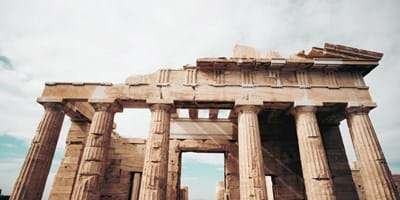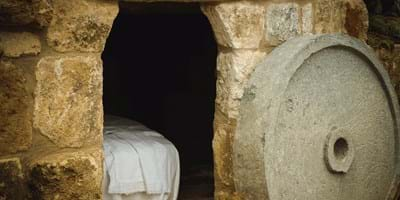Usually the challenge comes from someone who doesn’t believe any miracle claims. He guesses (correctly) that there are loads of miracle claims that Christians don’t accept as true, so he assumes (incorrectly) that they have a double standard in believing the ones they do believe and rejecting the others.
A helpful way of handling this issue is to ask him for specifics of other miracle claims and ask him why he doesn’t believe them, then see how those reasons fare against the miracles in the Gospels.
Reasons why your sceptical friend rejects claims about other miracles will include the following:
- The reports came long after the alleged events. There weren’t any eyewitness accounts, and there was time for legendary development, (e.g. the miracles attributed to Apollonius of Tyana, or to Muhammad in the hadith, which were recorded several generations after they died).
- The reporters were probably lying, (e.g. Joseph Smith, the founder of Mormonism, purchased some ancient Egyptian papyri, and claimed he, as a prophet, had the ability to translate them even though he didn’t know the language. His “translation” is the Book of Abraham, but when the papyri were found and translated by actual Egyptologists it was discovered they didn’t say anything close to what Smith claimed.)
- The event could easily be explained in a non-miraculous way.
- The witnesses were expecting a miracle and so convinced themselves that it happened.
You can happily agree that these are good reasons to dismiss the vast majority of miracle reports, but do they undermine the miracles reported in the Gospels? Not a bit.
The reports of the miracles in the Gospels are early, eyewitness testimonies.
The Gospels were all written in the first century, and Matthew, Mark and Luke were written (well) before the destruction of the Temple in Jerusalem in AD 70.1
In addition, the Gospels are eyewitness accounts. The incidental details within the Gospels and the coincidental agreements between them are two of the many reasons to believe the information in them came from on the scene sources.2
So, we can’t dismiss the reports of the miraculous as later legends. They are early, eyewitness reports. In the very first sermon Peter preached after the resurrection, he spoke about “Jesus of Nazareth, a Man attested by God to you by miracles, wonders, and signs which God did through Him in your midst, as you yourselves also know” (Acts 2:22).
I heard a Jewish man tell why he didn’t believe Jesus was the Messiah. He said the reason was simple, Jesus didn’t do any of the things the Messiah was supposed to do. He didn’t overthrow the Romans, He didn’t liberate the land, He didn’t usher in a reign of peace. The man was absolutely right that these were the things the Messiah was expected to do. Jewish documents from the period establish that the expectation people had of the Messiah was that of a political deliverer.3 The question then is, Why did anyone think He was the Messiah? The only answer that makes sense to me is that He claimed it and performed miracles to authenticate those claims.
"The question then is, Why did anyone think He was the Messiah?"
The reporters weren’t lying
Children learn very early in life the first “rule” of lying – you lie to get yourself out of trouble, not to get yourself into trouble. The disciples certainly were not liars. They sincerely believed that Jesus was the Messiah, and they were prepared to live and give their lives for their testimony.
Paul speaks about the “gain” he and his fellow-apostles got for their preaching:
For I think that God has displayed us, the apostles, last, as men condemned to death; for we have been made a spectacle to the world, both to angels and to men. We are fools for Christ’s sake, but you are wise in Christ! We are weak, but you are strong! You are distinguished, but we are dishonoured! To the present hour we both hunger and thirst, and we are poorly clothed, and beaten, and homeless. And we labour, working with our own hands. Being reviled, we bless; being persecuted, we endure; being defamed, we entreat. We have been made as the filth of the world, the offscouring of all things until now. (1 Corinthians 4:9-13)
Hardly a life of glamour. The thing that kept them going was that they were convinced what they preached about Jesus was true. These apostles weren’t liars.
The events can’t be explained in a non-miraculous way
The attempts to dismiss the miracles in the Gospels as non-miraculous would be funny if not so serious. There are those who suggest that the boy giving his five loaves and two fish to Jesus touched everyone’s heart and prompted them all to share their food. Such people display great ingenuity with scripture, but not much integrity. Christ’s power over sickness, nature and even death can’t be chalked up to coincidence or put down to the power of positive thinking. The Gospel writers were honest in what they wrote; we have to be honest with it too – Christ performed miracles.
The witnesses didn’t convince themselves
Some people can convince themselves they had an experience of seeing a vision or hearing a voice, but not too many people can convince themselves that they can see when they were born blind, or that they can walk when they were once paralysed, or that they are alive after having been dead.
And when it comes to the resurrection of Christ, the disciples weren’t expecting it. They required “many infallible proofs” (Acts 1:3) to believe it. The empty tomb, the number of witnesses, the tangible nature of the appearances, all join to testify to the fact that the experiences they had of being with the risen Christ took place out there in the external world, rather than in here in their own minds.
So, are Christians guilty of picking and choosing what miracles they believe in? Yes, of course. We choose the early, eyewitness accounts of honest men who gave everything for their testimony, i.e. the ones performed by Jesus Christ contained in the Gospels.
Notes:
- For a discussion on this, see, for example, Josh McDowell & Sean McDowell, Evidence That Demands a Verdict, Authentic, 2017, pp. 42-46.
- For further investigation see Richard Bauckham, Jesus and the Eyewitnesses: The Gospels as Eyewitness Testimony, Eerdmans, 2006, Lydia McGrew, Hidden in Plain View: Undesigned Coincidences in the Gospels and Acts, Deward, 2017, Peter J. Williams, Can We Trust the Gospels?, Crossway, 2018, or J. Warner Wallace, Cold-Case Christianity, David C Cook, 2013.
- See for example, Psalms of Solomon 17.21-32, written during the Roman occupation.





























